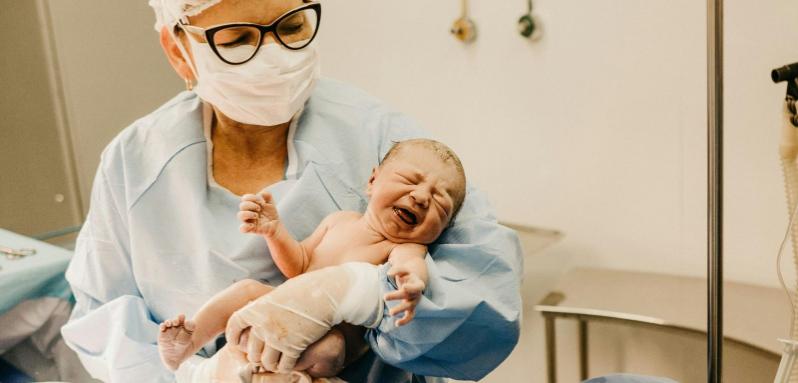Short Courses Content
CPD | Nursing
Neonatal Nursing

LEVEL OF STUDY - 7 - postgraduate level
Also available as a short course at degree level (level 3/6).
Approximately 25,000 babies are born in Northern Ireland each year with around 8% of them born preterm. Some babies born at term also require neonatal care and more than 10% of babies need some input from the neonatal team. It takes very knowledgeable and competent nurses to care for such a specialist population. Registered nurses, from both child and adult branches, are employed to care for these most vulnerable babies and their families. The need to become qualified in speciality in order to provide optimum care.
| Duration | 1 year |
| Delivery | Blended |
| Fees from | No Fee |
| Start date | 16 Sep 2025 |
For provisional timetables, please refer to the section below titled Delivery.
A postgraduate certificate normally comprises 3 modules, which you can complete in one year as a part time course of study. On successful completion you will be awarded 60 CATs points at Level 7.
Fees
| Commissioned Health Trust | No Fee |
| Self Funding / Fee Paying - 2025/26 | £2,434 |
Tuition fees and other charges are set by the University and are subject to change. | |
Entry Requirements
Applicants must have a degree at BSc level and be a registered nurse or midwife. They must be employed on a neonatal unit or be able to demonstrated how they will access clinical experience on a neonatal unit during the course. See Selection Criteria for full requirements.
The Programme
-
Course Content
The postgraduate certificate consists of two modules, which are usually taken part time over one year. This is augmented by day-to-day practice on a neonatal unit following which the student should have a sound knowledge of neonatal nursing care, and be competent to work on a neonatal unit.
- HSN7102 Special and intensive care of the neonate (40 cats)
- HSN7103 The art and science of neonatal nursing (20 cats)
-
Outcomes
This short course will facilitate the further development of an enquiring and creative approach to the study of neonatal care and related issues in a reflective and critically aware manner. Nurses and midwives involved in the care of sick infants are confronted daily by their medical problems. In order to provide quality care in the intensive and special care environment, they must have an in-depth understanding, not only of foetal and neonatal physiology, growth and development, but also the pathological processes concerned with neonatal illness. The course will focus on the needs of the sick new-born infant requiring Level 1, Level 2 or Level 3 nursing care. Students will be encouraged to develop their knowledge and skills in the planning, implementation and evaluation of nursing care for the sick new-born infant, and to reflect on approaches to nursing care that are individualised, family-centred and underpinned by evidence-based practice.
-
Delivery
Students should note that delivery may be via blended learning, with a mix of online and face to face classes as detailed within the module timetable on Canvas.
Autumn (AUT) teaching commences w/c Monday, 15 September 2025 (Week 1) and finishes w/c 1 December 2025 unless otherwise advised.
Spring (SPR) teaching commences w/c Monday, 12 January 2026 (Week 18) and finishes w/c 20 April 2026 unless otherwise advised.
Venue for first class listed below - thereafter, students should check the Weekly Planner facility on QSIS for remaining venues.
First Semester
Tuesday
9am – 12pm/ 1 – 4pm
Wk 4 (7/10/25) – 0G/404B Medical Biology Centre
Second Semester
Tuesday
9am – 12pm/ 1 – 4pm
Wk 18 (13/1/26) - 0G/404B Medical Biology Centre
TBC
-
Selection Criteria
Applicants must hold at least a 2.2 honours degree or above for entry to Level 7 (postgraduate level) study. Applicants who do not meet the entry requirements should contact the School for advice.
International Trained Nurses/Midwives: If you hold an international qualification you will need to provide a UK ENIC Statement of Comparability. This should be obtained prior to submitting your application. You can apply for a statement through the ENIC website: Statement of Comparability (enic.org.uk)
Students accessing this stand alone module must work in the relevant clinical area.
Please note that these courses are not open to international applicants living outside the UK/ROI.
How to apply
Applications for Academic Year 25/26 are now closed.
We will advertise again in June 2026 for September 2026 entry.
For any queries, please email cpadsnam@qub.ac.uk.
Please note that these courses are not open to international applicants living outside the UK/ROI.
